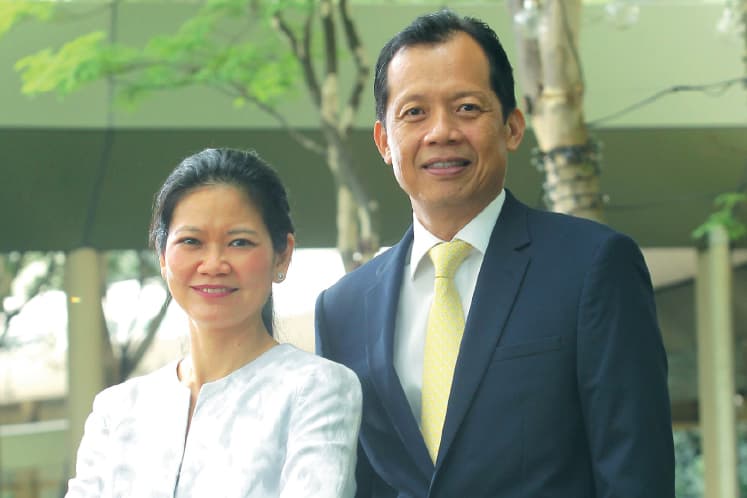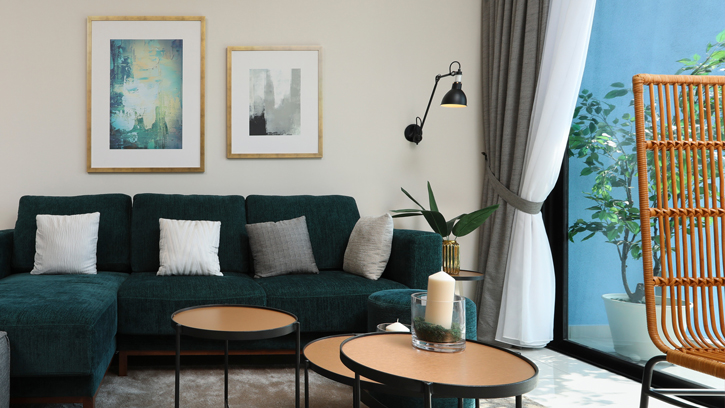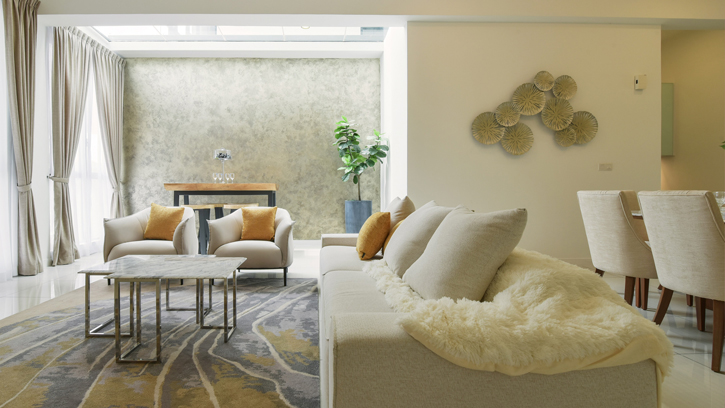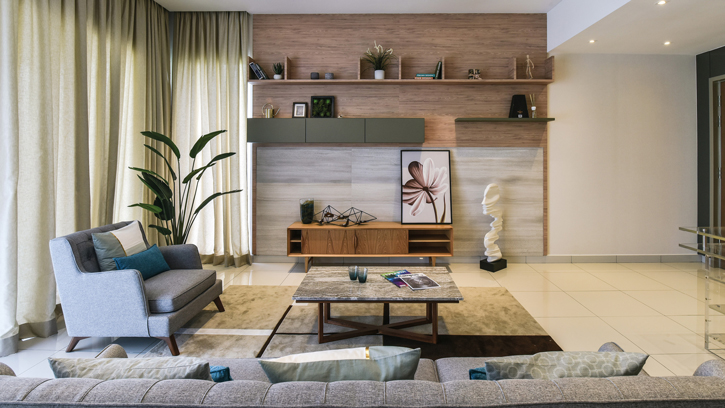
This article first appeared in City & Country, The Edge Malaysia Weekly on November 5, 2018 - November 11, 2018
No. 6 (joint ranking) – IOI Properties Group Bhd
We are honoured and happy to receive this award. But with this accolade, we understand the heavier responsibility and expectations in terms of customer expectation from us. In IOI, we take this very seriously and we strive to meet and exceed customers’ expectation,” says IOI Properties Group Bhd executive director Lee Yoke Har.
The developer is also looking to transform the industry via property technology. It has come up with various mobile applications to assist in health and safety checks, and defect and property management.
It constantly strives to provide total customer service — starting from when a property is purchased to the end of the defect liability period and beyond. It even provides after-sales service by assisting purchasers to look for tenants for their properties.
Lee and chief operating officer Teh Chin Guan share with City & Country the company’s current situation and its future plans and direction.
City & Country: How has the year been for IOI Properties?
Teh Chin Guan: It has been an exciting year. Property transactions have slowed down since 2015. For the past few years, except for the last, our results were a little down. The year before that, even during the slowdown, we were doing better. I think we had a record year during one of the slowdown years because we have property and land bank across a few countries. Besides Malaysia, we have Singapore and China, and our income from these two countries actually chipped in to give us record-breaking results.
I looked at the figures for the past few years and even with the slowdown, we managed to maintain our revenue. But last year, we did not launch in China, while the balance of the units in Singapore are fewer in number. So, our results were down mainly due to our overseas businesses. However, in this financial year [FY2019 ending June 30], our international business in Xiamen, China, which has kicked in, is going to give quite good revenue.
Almost two years ago, we won a land bid in Singapore, at Central Boulevard in Marina Bay financial centre. Nearby, there is the Marina Bay Centre and a casino called Marina Sands. This is the central business district of Singapore. We are building a skyscraper there, comprising offices, for rental.
Coming back to Malaysia, we are getting used to the slowdown. We are lucky in the sense that we have land bank in different regions and areas. Affordable housing has been much talked about. We are providing some affordable housing in our suburban townships such as Bangi and Kota Warisan where the land cost is cheaper. We are holding up very well in sales for these two areas. We are also doing very well in Putrajaya.
In terms of our property investments like hotels, shopping malls and offices, despite the market saying there is an oversupply of such properties, I think our shopping malls are doing very well. We are expanding IOI City Mall, where the occupancy rate is 95%.
Our hotels are also doing well. In Putrajaya, the occupancy of Le Meridian is 75% and Marriott, around 60%. Four Points by Sheraton in Puchong is around 80%. It is fully booked during weekdays, as it is a business hotel.
We are going to build one more hotel in Putrajaya. The brand is Moxy by Marriott, and it will be the first in Malaysia. The hotel will cater for the younger generation.
Lee Yoke Har: Teh talks about the hard figures and I would like to focus on the software. We continuously pursue excellence in product quality. Last year, we were focusing on improving the quality standards. We were thinking of how to re-engineer the whole property development [process] to see whether utilising property technology can improve our efficiency and deliver better services … basically to improve our competitive edge.
In terms of using property technology to deliver better efficiency, we have done research on many mobile applications and last year alone, we implemented three apps to help us to increase our efficiency in operations as well as to deliver better customer service.
How are your malls performing despite the current sluggish retail market?
Lee: One of the important success factors for IOI City Mall is the many direct accesses. We have multiple ingresses and egresses to fit traffic directly into the basement. So, people find it very convenient and we have ample parking space. These are some of the success factors people take for granted.
We have a lot of things that other malls do not have. For example, we have 7,000 parking lots and that will be expanded to 10,400 in time to come. So, how are you going to locate your car? We have a kiosk next to the autopay station where you can key in your vehicle number and you can then locate it. You no longer have to take pictures of the pillar next to your car.
The management of the mall is very experienced. They know that the next trend is about the experience and product offering. Creating a unique shopping experience is always at the back of their minds.
Can you tell us more about IOI Properties’ upcoming projects locally and internationally?
Teh: In Puchong, we are going to launch Stellar Suites, an office transit-oriented development (TOD) beside a light rail transit station. We are looking forward to another TOD project. It will be at the station in front of the IOI Mall Puchong. That will come on stream in two years’ time; it is now in the planning stage.
In Rio City in Puchong, a low-carbon city, we have started construction of the basement. Now, we are continuing with the superstructure. There will be many projects here because the land bank is almost 100 acres. The first will be around seven to eight acres.
The success of our projects in Putrajaya is because of the shopping mall. It is not only because of the hardware, which is the appearance of the mall, but also the software inside, which are the products we are selling. We have a world-class shopping mall, two 5-star hotels, a resort and an international-class golf course. Not many townships have a similar combination of developments. Our condominium project is selling at a lower price now because of the slowdown.
Overseas, there aren’t many units left for sale in Singapore, so we moved on with renting out offices. We have tasted our first success in Singapore in terms of office rental, which is South Beach. Our tenant is Facebook, which has its Asia Pacific regional centre there. Other tenants include Rabobank and other international financial institutes. The offices are fully occupied. That’s why we are now moving on to our second project, which is bigger, at Central Boulevard. The property market in Singapore is a bit challenging because the government keeps imposing stamp duty.
In China, it is still very upbeat because our entry cost was very low. We started selling our apartment project at RMB14,000 (RM8,400) psm shortly after we bought the land. Now, we are selling at RMB40,000 psm and it is going like hot cakes. Last month, we launched 100 units and 90 were sold. These 90 units generated RMB570 million. So, there will be more launches in China.
What kind of growth do you want to see in the next 12 months and what will your strategy be?
Teh: In Malaysia, I think we will be doing slightly better than last year. Internationally, we will have a lot of sales coming in from China.
We have a new housing minister and she has been very actively engaging with the stakeholders — developers like us and also, other government agencies. Every other day, we will hear news of her doing something. I see the minister’s seriousness in tackling a lot of issues in the housing industry, such as the bumiputera quota and the mechanism to release the bumiputera units. This is a core issue in the sector. So, probably she will focus on this and it will help the housing industry a lot with holding cost. Holding cost is something we pass on to the purchaser, so if it is lower, people will enjoy cheaper housing.
There is also news that utility companies must provide their own amenities. It makes sense, as it is the developers that have been doing it. On top of that, we still have to pay contribution. All these are added to the housing price. We hope that this will happen ... it will help the industry. Everybody will do their job more efficiently. When you are efficient, things will be cheaper.
As for our strategy, in our Puchong township, we have the LRT stations, so we are going to focus on sustainable developments such as transit-oriented developments and the low-carbon city development.
Lee: Basically, in order for us to deliver affordable housing, we have to build up our competencies to do a very efficient design. That is something we are increasingly fine-tuning to make sure we can actually afford to pass on the savings to the consumers. That’s also a big part in what we are doing in terms of design development.
We have been labouring continuously and we have not been in the limelight. But going forward, you will hear a lot more about us and what we are doing.
Save by subscribing to us for your print and/or digital copy.
P/S: The Edge is also available on Apple's AppStore and Androids' Google Play.






